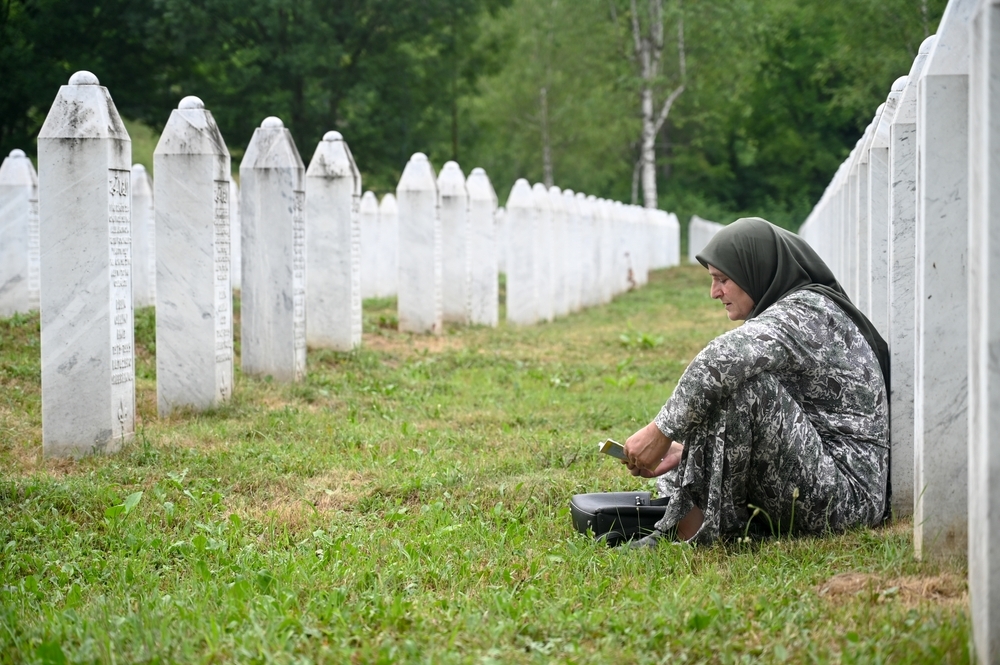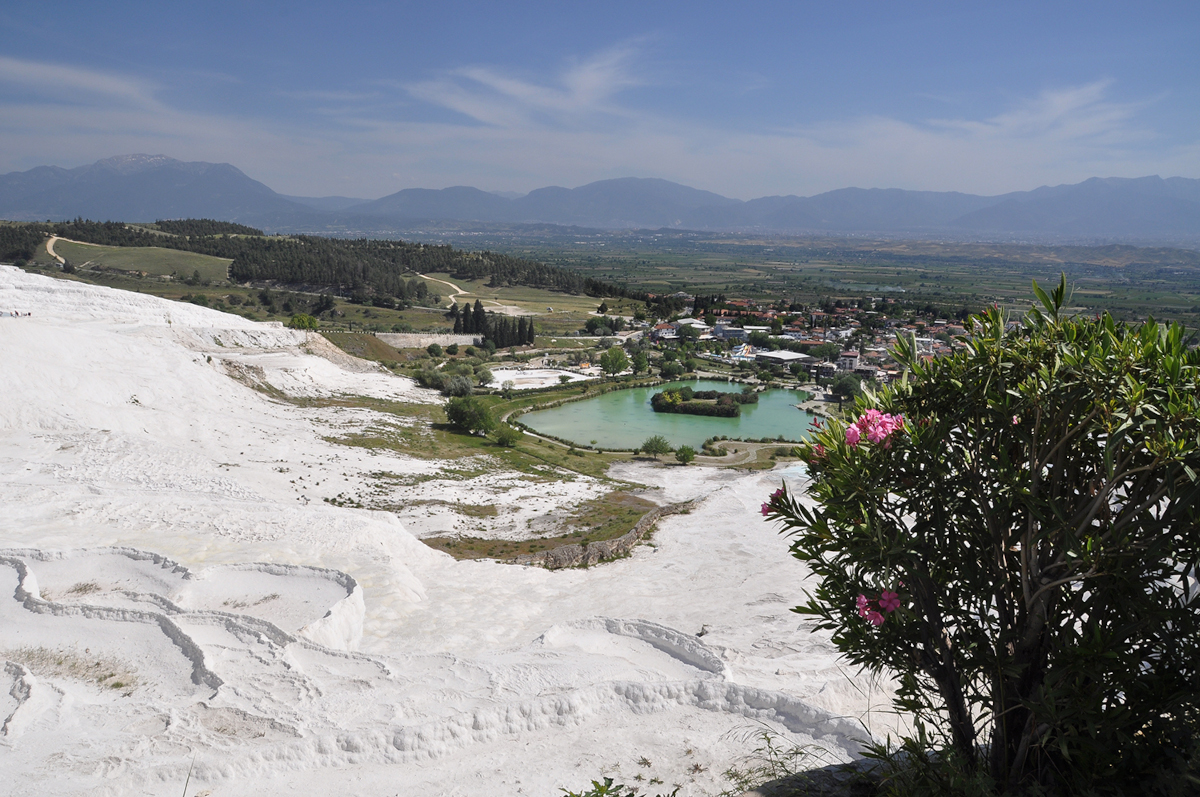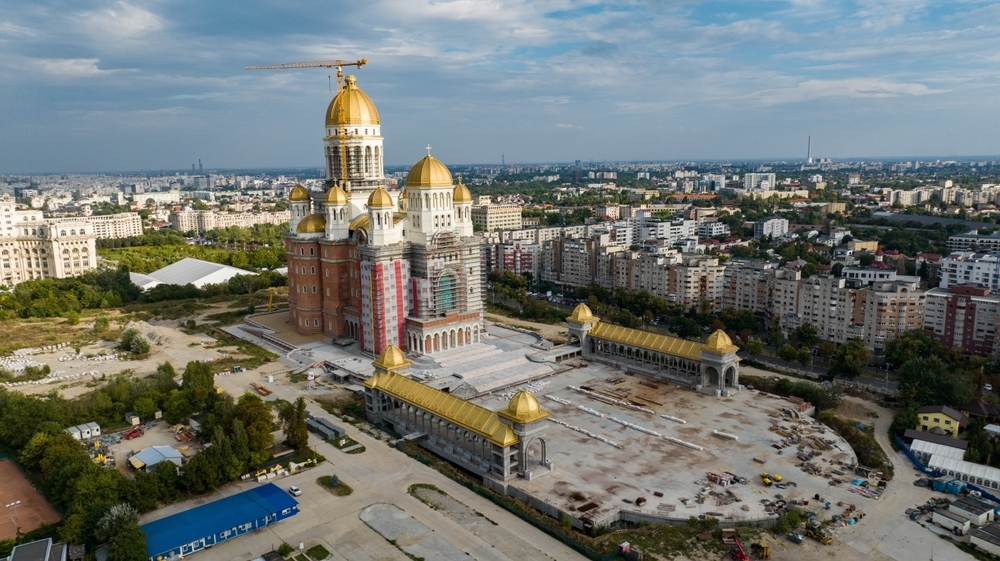La situazione economica e sociale in Republika Srpska
La disastrosa situazione economica della Republika Srpska, l’alto tasso di disoccupazione e un sindacato spesso inesistente e corrotto. Difficili condizioni di vita che trovano sfogo nella costante presenza dell’economia grigia.
La disastrosa situazione economica della Republika Srpska, l’alto tasso di disoccupazione e un sindacato spesso inesistente e corrotto. Difficili condizioni di vita che trovano sfogo nella costante presenza dell’economia grigia.
Abyss
The economic situation in the Republic of Srpska is catastrophic, and that is not just regular news. The prime minister himself emphasized several times that the republic has practically gone bankrupt. Did he, in empasizing that fact, attempt to provide himself an alibi for future failures or is it a case of something else? However, the fact that nothing has been done after the bankruptcy worries us. The truth is that the last government was dispensing more information about how and where the money was spent, rather than looking for the way out of this situation. Marathon conferences of the Republic’s parliament are an example. At these conferences, no matter what is on the agenda, most of the time is spent discovering some sort of lastest government affair. Indifference is noticed among the citizens. Almost, no one hopes that maybe one day the situation will be better and that the sessions of the National Parliament will not be experienced as an amusing TV program.
The biggest shame for a house is when the neighborhood talks about it´s problems. It is unknown if one of local politicians has heard this popular proverb, but it is obvious that no one reacted to the articles in the last bulletin of the Central bank of BIH in which the economic trends in the entities are described.
BELIEVE IT OR NOT
The Budget: Industry, Employment, and Corruption
In the Republic of Srpska, industrial production in the period from January to June 2001 has fallen. With respect to last year, the volume of production is less then 12,2 percent. The biggest fall was in the mining region – 35,5 percent. Presently, the industrial production in Federation BIH has increased by 10,3 percent compared to last year.
Retail prices in Srpska in the first six months of this year have increased by 6 percent and in the Federation BIH by 2,1 percent in comparison to the previous year. In our country the prices of agricultural products are noted as having the biggest increase in prices with an increase of 42,5 percent. In accordance with the rise in prices, living expenses rose by 6,5 percent in RS and by 2,6 percent in Federation BIH.
Compared with last year, net-gain increased by 8,7 percent in the RS and by 6,8 percent in the Federation BIH, therefore the average income in the RS is 298 KM (1 KM has the same value of the 1 DM) and 441 KM in the Federation BIH. In the RS, the highest salaries are in governmental administration at about 486 KM, and the lowest salaries are in light industry – 192 KM. However, there are many people who do not receive a salary, or if they do, receive it a few months late. The former giant "Jelshingrad" in Banja Luka is an example, where the workers received May’s pay at the low amount of 40 KM !?
At the end of June 2001 in RS, 221 326 workers were employed. At the Republic Bureau for Employment, June 30, 2001, 153 378 persons looking for jobs are noted. These people are mostly skilled (37 percent) and unskilled workers (30 percent). 1 837 persons with university-level specialist training are also noted.
On the basis of the data, the ministry of finance in RS reported for the period January-June 2001, the total budget income was 241,4 million KM, from which domestic incomes were 241,2 million Km and checking accounts 0,2 million KM. The incomes are less then 20 percent of what the anticipated amount for this period was. The total budget consumption in the same period was 269,4 million KM, from which the total domestic consumption was 245,5 million KM or 91,1 percent.
The revisions of last year’s budget in the RS and FBIH performed by a special team from OHR and OSCE, had established the existence of 105 corruption cases. 31 cases were in RS and 74 in FBIH. OHR emphasized that these cases are on top of an "icy hill" and the revision established "holes in a system" which cost RS about 100 million marks. For the time being, despite the insisting of the high representative, the investigating officers in RS did not undertake concrete action against those cases.
Labor Unions in the Republic of Srpska
As a result of the situations described above, it is normal that the citizens had low work expectations. The analysts predicted that the autumn would be warm. Also, strikes were predicted as well as social demonstrations. But the Balkans wouldn’t be the Balkans if everything went as expected. The reasons for this are too numerous to mention, but the indifference of the people is one of the biggest. However, there is an exception to every rule. Examples of this include the pensioners who mid year, every year, walk a street in Banja Luka, the capital town in RS, the school workers who threaten with strikes and the medical workers who unsuccessfully have attempted with strikes. Why is that all?
It is not necessary to be too intelligent to reach the conclusion that the workers need an organization leader and a protest meeting. What about the union? The union exists, but only the republic one. In RS, the independent union is still an unsolvable mystery. The first one is still in the communist system, although many years have gone by since then.The Federation of Labor Unions RS (SSRS) meets to discuss problems which are mainly all material and organizational.
"The basic principle should be delegating by the number of employees in the branches, because membership is in the branches, not in the community unions"- emphasizes Mirko Djukic, the president of the Energetic Union. He does not want to criticize the president of the SS RS, but he thinks that delegating six people of one branch to 40 000 workers is illogical. On the contrary, the president of the SS RS Cedo Volaš considers the existing way of organizing the union in RS as one of the best in Europe.
In the immediate organization of syndicate workings, the opponents of Cedo Volas see a way for manipulation. Some of them said that the president of the SSRS had built the whole ballot machinery and that was the reason for his being head of the union "He visits communities from where he takes people, mostly former communist officials, and he survives that way"- explains one of the president´s collaborators. In contrast to anonymous critics, the president of the Educational Union, Ranka Misic, clearly presents her opinion. "The Union’s organizational structure is double – territorial and branch, but the relationship between the territory and the branch is not defined"- says Ranka Misic. She thinks that the branch organizing way makes it possible for workers to realize their rights. Syndicate organizing, dues, and the mode of distribution are some of the key questions which were the subject of changes in the laws of the SS RS. "I don´t know, what is going to change. I think that changes should be made according to the needs of single person"- says Ranka Misic.
The General Council of the SS RS made the decision that the worker will voluntarily join the Union and give one percent for net-gain. Of that 0,5 percent is for union organization and 0,5 percent for the SS RS. In this way, SS RS should return 0,2 percent to the branch union and the rest is for the union’s work. "The branches often get less, but the territories get over five – six percent more. So it is very important to discuss what the member of the union gets for membership"- says Misic.
"The Federation of Labor Unions RS gets 50 percent of means, what the unique is in the whole world, becouse the other get only between 10 and 12 percent" – says Mirko Djukic. He thinks that this distribution must carry out by automatization like in Energetics Union. "Volas maintains that it can´t go by automazation, but we proved that it can. Everything goes through the banks and nothing from here, union main office"- he explains. One of his union collegue is severe critic:
"Distribution in the Federation of Labor Unions RS is done by Volas according to criterions of the obedience and the beauty".
Corruption in the Union
Volas maintains, again, that the automatization in distribution exists, but the fact that it isn´t done by the banks he explains by the "undeveloped bank system" in RS . Criticizing his work, most of them cite the control board report of the SS RS from April 1996 on business and the final account in 1995. In this report many irregularities can be found in the union’s management: unjustified costs, information about humanitarian aid which is "shared without criterion and without proof of its taking over". The report mentions a transaction of 41 180 l oil in 1993 for which no complete documentation exists. It is unclear who the users were of the greater part of the humanitarian aid, which came that war year in Banja Luka. The destiny of this report is unknown but every time election talks were started, the report was pulled out. On the other side, the cause of the stoppage, is that many of the union members find the president of the SS RS, Cedo Volas’, way of managing old-fashioned and unproductive. It is nothing to say that his union biography is impressive: 1986-1990 he was the president of the Forestry Union, 1990-1992 he was the secretary of the SS BIH and, and since 1992 he is the president of the SS RS. His survival in different political climates, Volas explains as wit knowledge (not wit "personal smarts" as he says). On the question of what is the political determination of their president, the union members of the opposition answer ironically: "Inflected". Some of the members attribute closeness with SDS to him, emphasizing that he is well connected with the political system. The collaboration has been signed two years ago with the president of the union FBIH, Sulejmanom Hrletom. Many of the union members explain this as a court to a multiethnic concept of BiH. The same members use the phrase "the end of love" to explain the coming to power of the other political structure which is the common institutions of BIH.
Cedo Volas has a different opinion: "Hrle has started to come out as SS BIH and with that he disturbed the principle of independence of our union". The secret of his survival Volas claims is that he has disassociated himself from the political parties, that he works 15 hours a day and that the SS RS functions despite its problems. "Work has preserved us and that should be our standard", he orders. Volas, on the insinuation about his financial affinities with SDS, answered with a "slap" to the present set of power by a critical letter on the occasion "100 days of government". The union collegues wonder why Volas does not "slap" the government with strikes and fight for the workers rights.
"When we tried to point on the admissions and problems as the corruption is, we did not have support from SS RS. After the last school workers strike, we got a support from the Presidency SS RS"- says Ranka Misic.
In order to understand the case of Volas, it is necessary to know one more case. A long time a go Volas should have moved out from the three and a half room apartment given to him and it should have gone back to the real owner Gordana Mandic. That apartment was given to Volas for temporary use in December 1994 from the Banja Luka Community, and the smaller two-room apartment was given to the Gordana Mandic. Answering the question as to why he is still in the controversial apartment, Volas said that he was still looking for "the solution to the housing problem" and that "the ministry didn´t know what to do with him."
Most of the union directors agree that the reorganization of the SS RS is necessary , beginning from its statute and its decision about dues.They think that the unions do not have the basic conditions for work and that is the reason why the unions do not function well.
Dodik, the last prime minister, is in agreement. "We haven´t, really had the union. All we have seen until now is the photographing of the leaders".
Therefore, the question remains, how do the citizens in the RS live? The one who can give a precise answer, certainly, will write a new page in economics textbooks and maybe get the Nobel price. However, one question which is for many the biggest enigma, is that we on the one side have a catastrophic economic situation and on the other side we have full restaurants and cafe bars . How do we explain why in this bankrupt country in the evening you can´t find a free table in the cafes or in the restaurants and that the biggest disturbances are in front of the "Telecom" mobile office. The approximate answer can be the grey economy which according to some estimates includes about 60 percent of the GDP (gross domestic product) in RS— or – the whole public product.
Vedi anche:











